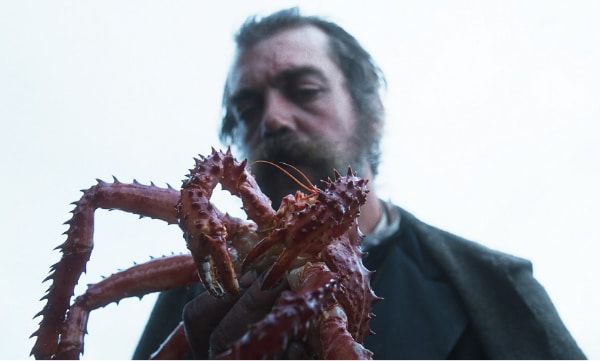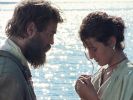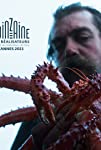Eye For Film >> Movies >> The Tale Of King Crab (2021) Film Review
The Tale Of King Crab
Reviewed by: Amber Wilkinson

In recent years the space between documentary and fiction has become an increasingly well-trodden continuum, with the boundaries most noticeably pushed by the Ross brothers dive bar hybrid Bloody Nose, Empty Pockets, Milo Rau's passion play/documentary mix The New Gospel and Alessandro Cassigoli and Casey Kauffman's coming-of-age character study Californie. Joining them is Alessio Rigo de Righi and Matteo Zoppis' The Tale Of King Crab, which despite being part of DocLisboa, is firmly towards the fictional end of the spectrum, only beginning and occasionally revisiting the realm of documentary before spinning off into folk tale and legend.
The pure documentary element is a meal being shared by hunters, who begin to consider the old tale of Luciano - variously described as "crazy" "a drunk" an "aristocrat" among other epithets - before the film dives into re-enactment of his tale of romance and tragedy. Lovers of fine yarns will no doubt warm to the film's two chapters - the first, The Saint Orsio Misdeed, set in the bucolic verdancy of Italy at the turn of the 19th/20th century and the second, The Arsehole Of The World, transporting us to the barren landscapes of Argentina's Tierra Del Fuego.

Luciano (Gabriele Silli) is about 70 per cent man and 30 per cent beard, the sort of character to grace a thousand tales of love and loss, and the cyclical and mutable nature of this sort of legend is something the film's documentary element is quick to point out. The use of traditional folk song and the fact that the language shifts from Italian to Spanish also highlights the way that stories are passed from mouth to ear down the generations and across borders.
The son of a doctor, which affords him a little protection, Luciano nevertheless finds himself at loggerheads with the local prince (Enzo Cucchi) - over an access road of all things - while also attracting the ire of shepherd Severino (Severino Sperandio) after taking a shine to his daughter Emma (Maria Alexandra Lungu).
With tragedy not far away, the second part of the film exiles us, with him - or, as the hunters would remind us, one version of him - to Argentina. Now pretending to be a priest, he goes in search of a hidden gold treasure alongside a group of greedy sailors using the king crab of the title as an unlikely compass. Although all the men in the film are non-professionals - Lungu was previously in The Wonders - the less polished, more lived-in look suits the stories and is something cinematographer Simone d’Arcangelo's camera hunkers in with rather than pulling away from. The look in general has a Dutch Masters feel in the first portion, particularly in scenes at an inn or where flames are flickering, the light and shade lending weight and depth to Silli's sombre and intense performance. The second half, meanwhile, has a deliberate Western vibe, despite the unusual setting.
The themes of the stories, stretching from love to greed and salvation, have a universal resonance and it's only a shame that the filmmakers didn't choose to explore more the nature of the telling and retelling of tales and the way they can gather shading and embellishment as they go, which is hinted at here by those documentary moments all too fleetingly.
Reviewed on: 03 Nov 2021



















